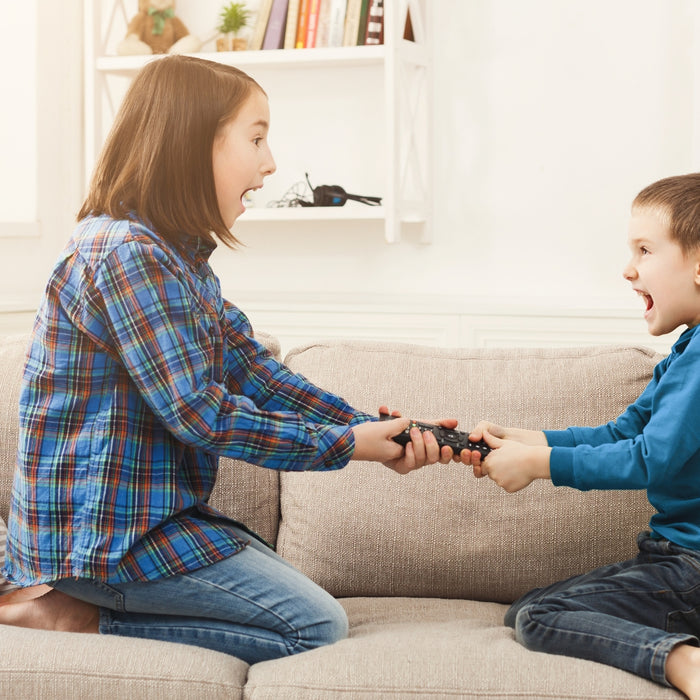
Listen to the article:

Have you often wondered if your child is playing too much or too little? Do you worry when you notice that your child often alone even when other kids are around? Is your child’s playtime often limited due to safety concerns or lack of time?
If you can relate to any of these, keep in mind that playtime is vital to your child’s development and limiting play or setting too many boundaries can actually be a hindrance. So, when playtime rolls around, let your child be the leader.
The Importance of Playtime
Kids are busier than ever in today’s society. With an array of structured activities available to kids of all ages, many parents feel inclined to sign kids up in an effort to prepare them for the future. When schedules become so crowded with extracurricular activities, free playtime is depleted
And, as kids enter school age, they feel even more pressure as recess time becomes less available. Schools require higher aptitude scores and teachers try to fit in more instruction and assign additional homework until eventually free playtime at school or home becomes practically non-existent.
Recent research suggests that these burdens along with technology, kids experience less than 4 hours a week simply playing. Solo, unstructured playtime allows kids to use their imagination, experience the fun of learning new things on their own, while developing their cognitive and physical skills. In addition to solo play, it is just as important that kids have an opportunity to interact with others so they can learn life skills such as sharing, taking turns, socializing, and getting along with others.
The Negative Consequences
For more than fifty years, playtime has been declining on a continuous basis, which has created an influx of people suffering from anxiety, depression, stress, and lack of self-confidence.
Most likely when you think of your own childhood you also recognize that kids are seen playing outdoors on their own a lot less nowadays. Much of this is due to safety concerns, but nevertheless, kids are suffering the consequences.
Below is a list of benefits that children derive from playtime.
- Play offers the opportunity to discover interests. When kids are allowed to freely play, they direct themselves and explore various things, which help them figure out what they enjoy as well as what they don’t care for. Having the ability to personally identify true interests helps kids learn to pursue their desires. This differs from structured activities because there are rules and expectations involved and kids are motivated to excel as a way of getting a reward, praise, etc.
- Kids learn to control their emotions and explore limitations. When children participate in activities of their own freewill, they often role-play or challenge themselves to try something new.
- Whether your child is playing with other kids and needs to solve a problem or practice patience, it is an ideal time to learn how to control feelings. Or perhaps he is playing solo, during this relaxed time setting the perfect environment to imagine being a superhero while climbing a tree, or swinging a little higher than ever before, as he learns his limits.
- Playing kids are happy kids. It is the time when fewer rules apply and kids can enjoy making their own decisions. Consider for a moment a hobby that you enjoy. Most likely you enjoy it because you chose it completely for yourself, make your own rules, and escape from the stresses of life. That is equivalent to playtime for kids.
This free time plays a major role in their overall development and happiness now and when they get older. Be sure to carve out ample time for your child to take the lead in playing.
Thought Starters:
- Encourage Unstructured Play: Reflect on the importance of allowing children to engage in play that is not directed by adults, fostering creativity and self-expression.
- Balance Activities: Consider how to balance structured activities with free playtime, ensuring children have opportunities for both guided learning and independent exploration.
- Role of Outdoor Play: Ponder the role of outdoor play in children's development, especially in an age when such activities are less common due to safety concerns.
- Parental Involvement: Think about how parental involvement in play can be adjusted - sometimes stepping back to let children lead can be more beneficial than direct engagement.
- Emotional Regulation Through Play: Contemplate how playtime helps children learn to control emotions and understand their own limits, providing a safe space for emotional development.
Suggested Questions To Ask Your Child:
- What's your favorite way to play?
Encourages the child to express personal preferences in play, fostering autonomy in choosing activities.
- Can you show me something new you learned while playing?
Prompts the child to reflect on and share learning experiences gained through play, highlighting the developmental value of play.
- Would you like some alone playtime or prefer to play with others today?
Helps understand the child's current social preference for play, whether they seek solitary or collaborative experiences.
- How does playing make you feel?
Assists in developing the child's emotional awareness and expression related to their play experiences.
- What adventure or story did you imagine during your playtime?
Encourages the child to share creative narratives or scenarios they envisioned, fostering imaginative thinking and storytelling skills.



